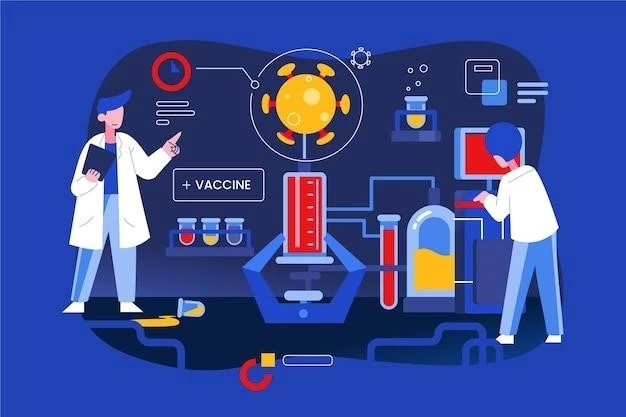Introduction
Recent advancements have significantly improved our understanding, diagnosis, and treatment of mitochondrial diseases of nuclear origin. These conditions are characterized by defects in mitochondrial function.
Mitochondrial diseases are a group of genetic disorders resulting from defects in oxidative phosphorylation caused by mutations in nuclear and mitochondrial DNA. These disorders present a wide range of clinical manifestations affecting various organs and systems, with significant implications for pediatric populations. Advances in research have shed light on the complexities of these diseases and the challenges in diagnosis and treatment.
Overview of Mitochondrial Diseases of Nuclear Origin
Mitochondrial diseases are caused by defects in oxidative phosphorylation due to mutations in nuclear and mitochondrial DNA, leading to a range of clinical manifestations.
Role of Mitochondrial Genome in Diagnosis
The mitochondrial genome plays a crucial role in diagnosing mitochondrial diseases, especially when nuclear origin is unclear. Mutations in mitochondrial DNA are analyzed to determine disease involvement and guide diagnostic approaches.

Understanding Mitochondrial Diseases
Mitochondrial diseases originate from defects in the oxidative phosphorylation process due to mutations in nuclear and mitochondrial DNA, leading to a range of clinical manifestations.
Common Inherited Neurometabolic Disorders
Mitochondrial diseases represent a group of common inherited neurometabolic disorders, affecting individuals due to mutations in both nuclear and mitochondrial DNA. These disorders can have profound impacts, particularly in pediatric populations, with a wide spectrum of clinical presentations and challenges in diagnosis and management.
Impact on Pediatric Population
Severe mitochondrial diseases have a significant impact on children, primarily affecting pediatric populations due to dysfunctions in the F(1)F(o)-ATPase complex, leading to serious health challenges.
Severe Mitochondrial Diseases in Children
Primary ATPase defects, whether from mtDNA mutations or nuclear origin, severely impact pediatric populations, leading to mitochondrial dysfunction and complex health issues.
Genetic Aspects of Mitochondrial Diseases
Mutations in both nuclear and mitochondrial DNA contribute to the genetic complexity of mitochondrial diseases, presenting diverse clinical manifestations due to the affected genes.
Mutations in Nuclear DNA and mtDNA
Mutations in nuclear DNA and mtDNA play a key role in the genetic complexity of mitochondrial diseases, leading to a wide range of clinical manifestations and challenges in diagnosis and management.
Evolutionary Perspective
The endosymbiotic origin of mitochondria and the genetic complexity involving both mitochondrial and nuclear DNA contribute to the understanding of mitochondrial diseases.
The endosymbiotic origin of mitochondria explains the unique genetic characteristics of these organelles, with their own genome separate from nuclear DNA, contributing to the complexities of genetic causes of mitochondrial diseases.
Complexities in Genetic Causes
Pathogenic mutations in nuclear genes affecting mitochondrial DNA maintenance can lead to various mitochondrial diseases, posing challenges in diagnosis and treatment.
Endosymbiotic Origin of Mitochondria
The endosymbiotic origins of mitochondria have shaped their unique genetic characteristics, with a distinct genome separate from the nuclear DNA. This evolutionary perspective highlights the complexities of genetic causes in mitochondrial diseases.
Historical Insights
Pioneers like DiMauro shaped the field of mitochondrial disease research, laying the foundation for understanding these complex genetic disorders.
Distinguished individuals like DiMauro and Luft contributed significantly to the early advancements in mitochondrial disease research, setting the stage for further exploration and understanding of these complex disorders.
Inheritance Patterns
Autosomal dominant, autosomal recessive, and X-linked traits influence the inheritance of mitochondrial diseases with genetic complexities arising from mutations in nuclear and mitochondrial DNA.
Pioneers in Mitochondrial Disease Research
Pioneers in mitochondrial disease research like DiMauro contributed significantly to our understanding of these complex disorders, laying the groundwork for future advancements in the field.

Molecular Diagnosis Challenges
Genetic testing for mitochondrial disorders involves complex analyses of nuclear and mitochondrial DNA to provide accurate diagnoses and guide treatment strategies.
Genetic Testing for Mitochondrial Disorders
Mitochondrial disorders present challenges in genetic testing due to the involvement of both nuclear and mitochondrial DNA, requiring comprehensive analysis for accurate diagnosis.
Mitochondrial DNA Dynamics
Importance of coordination between mitochondrial and nuclear gene expression for cellular ATP production.
Coordination of mtDNA and Nuclear Gene Expression
Proper coordination between mitochondrial and nuclear gene expression is essential for efficient cellular ATP production, emphasizing the crucial role of both genomes in mitochondrial diseases.
Therapeutic Implications
Treatment trials and natural history studies play a crucial role in understanding and managing mitochondrial diseases for better patient outcomes.
Therapeutic Implications
Treatment trials and natural history studies in mitochondrial diseases are crucial for understanding the conditions and developing effective management strategies for improved patient outcomes.
Respiratory Chain Complexes
Respiratory chain complexes play a vital role in cellular ATP production, involving subunits from both mitochondrial and nuclear origins.
Essential Role in Cellular ATP Production
Respiratory chain complexes are crucial for cellular ATP production, with contributions from mitochondrial and nuclear DNA-encoded subunits for optimal function.
Genetic Counseling Considerations
Recurrence risk counseling for mitochondrial diseases involves comprehensive assessment of genetic factors to inform patients and families of potential inheritance patterns and risks.
Recurrence Risk Counseling for Mitochondrial Diseases
Genetic counseling for mitochondrial diseases involves understanding inheritance patterns and recurrence risks based on mutations in both nuclear and mitochondrial DNA.
Current Research Trends
Advances in mitochondrial medicine research focus on understanding the genetic complexities of mitochondrial diseases for effective diagnosis and treatment.
Advances in Mitochondrial Medicine
With continuous advancements, research in mitochondrial medicine focuses on unraveling the genetic complexities of mitochondrial diseases to enhance diagnostic approaches and therapeutic interventions.
